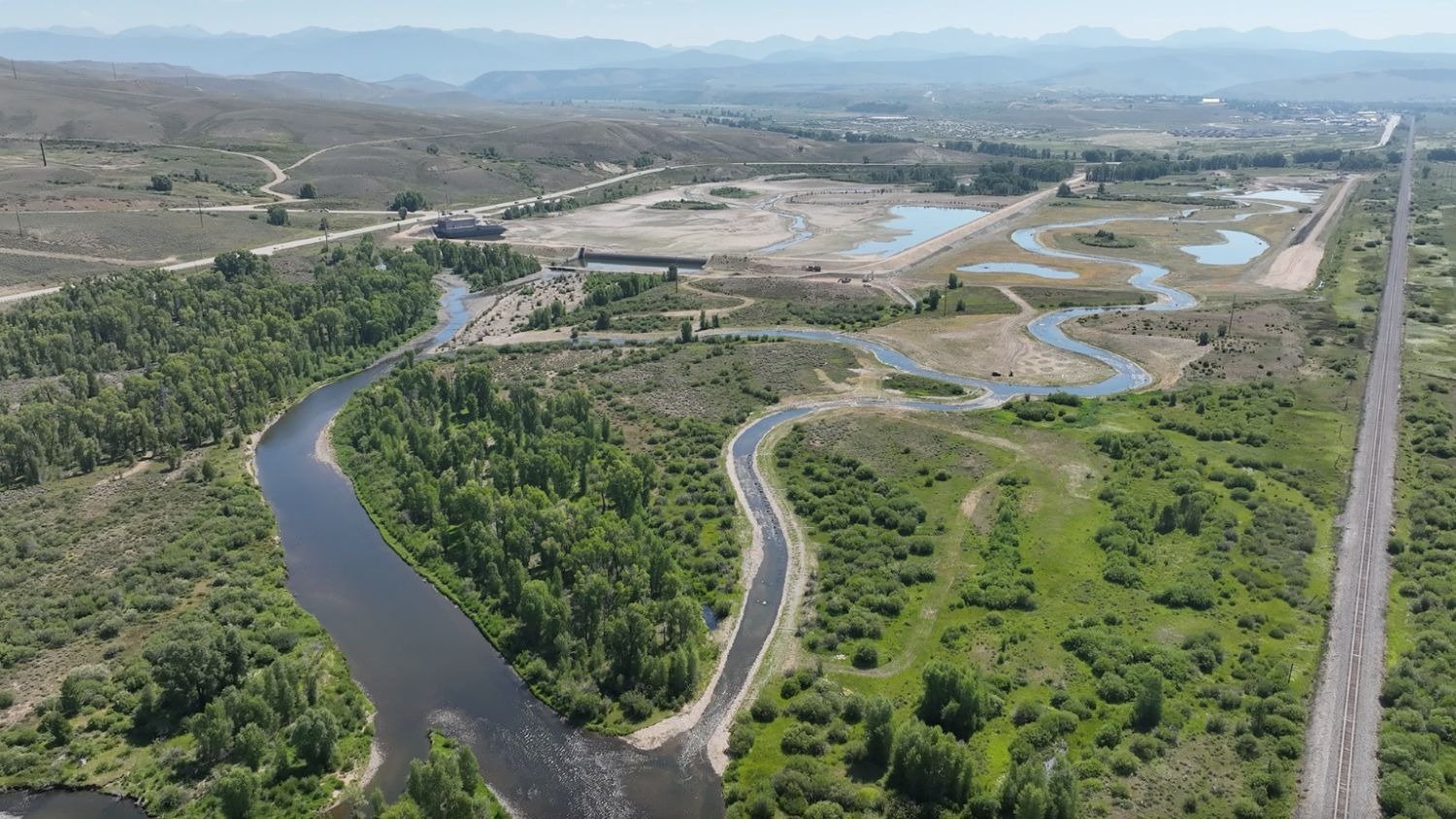On Tuesday, June 9, the Colorado Division of Wildlife (DOW) and Denver Parks and Recreation will launch a floating island habitat enhancement project at Smith Lake in Washington Park. The four fabricated islands, which will be anchored on the west end of Smith Lake, will be planted with young native wetland plants. The goal for the project is to enhance wildlife viewing, provide fish and waterfowl habitat, and improve water quality. The island habitat project was coordinated by a partnership between Colorado Division of Wildlife, Denver Parks and Recreation, , and the Denver Department of Environmental Health. Funding for constructing the islands came from a grant from Great Outdoors Colorado (GOCO), and included a significant donation from Headwaters Floating Islands, the Montana company that fabricates the islands Washington Park was selected for this experimental project because Smith Lake and the wildlife surrounding it will benefit from any water quality enhancement, families will be able to enjoy watching for native wildlife, and a strong local neighborhood group, Friends and Neighbors of Washington Park, will be able to help the City of Denver, Denver Parks and Recreation and the DOW to monitor the project�s success. �This is an exciting project for Washington Park, showcasing some of the unique and interesting things we are capable of doing when we partner with other like-minded organizations and most importantly, the community,� said Kevin Patterson, Manager at Denver Parks and Recreation. It will take several months for the wetland plants to grow and mature. By the end of the summer, the islands should be established and operating as a �bio-haven�- which is the name that Headwaters Floating Islands has given to this unique project. By next summer, Washington Park visitors should be able to enjoy watching songbirds, waterfowl, colorful dragonflies � and hopefully a few turtles. �We will be watching for signs that wildlife is using the habitats,� Karen Hardesty, wildlife viewing program coordinator with DOW said. �With the help of volunteers, we�ll talk with anglers to learn how the islands have affected fishing, and monitor water quality right around the islands � hoping to see even small improvements.� Both Denver Parks and Recreation and the DOW hope that the public will enjoy the benefits from the islands soon, but it may be next summer before anyone notices any major changes. �This project is going to require some patience,� Hardesty added. �Once we construct the islands, the rest is up to Mother Nature � and she has her own time schedule. If everything goes well, and we think it will, we hope that floating islands like these can be used in other urban lakes and ponds to enhance urban wildlife habitat, provide viewing and education opportunities, and improve water quality.� Division of Wildlife Previous







